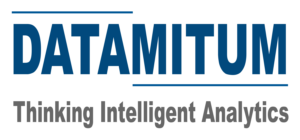Data Science: Basic Course
Ranked #1 Online Live Data Science Training
What will you learn?
Module 1 - Python
Module 2- Numpy
Module 3- Pandas
Module 4- Scipy
Module 5- Probability
Module 6- Statistics
Module 7- Data Pre-processing
Module 8- Data Visualization
Data Science Course Overview
Data Science basic course with Anexas will gain you the basic knowledge required to enter the fields of Data Science. In this course, you will learn to analyse your data, prepare basic data visualisation and model your data. You will also learn the concepts used by Data Scientists. Anexas aims to provide you with practical knowledge to start your career in data science. During the course you will practice with many exercises and real-time projects.
What's in it for you?
A career in Data Science translates to advanced skill sets, resulting in finer job profiles, salary benefits and influential networking opportunities. Anexas Basic Data Science course provides you with certification along with other benefits listed below:
- A certificate by Anexas Europe with international recognition.
- Interactive training sessions with industry experts.
- Best trainers for training.
- Lifetime membership to Anexas Alumni group.
- Lifetime access to dashboard with Anexas.
- Content-rich study material.
- Free eBooks with completed projects.
- Project guidance.
- Real-time project completion during the course.
- Tools required for the training.
- Open book online test for certification.
- 100% Pass guarantee.
- Cashback benefits and other offers.
- 24×7 Customer support.
Enquiry Form
Get Certified In Data Science
- Installation – Anaconda, Pycharm, Virtualenv
- Introduction to python
- Basic Syntax, comments, Variables
- Data Types, Numbers, Casting, Strings, Booleans
- Operators, Lists, Tuples, Sets, Dictionaries
- If…Else, While Loops, For Loops
- Functions, Lambda, Arrays
- Arrays, Classes/Objects, Inheritance, Iterators
- Scope, Modules, Dates, Math, JSON
- PIP, Try…Except, User InputP, String Formatting
- File Handling, Read Files, Write/Create Files, Delete Files
- Ndarray, Data types, Array Attributes, Indexing and Slicing
- Array manipulation, Binary operator, String Function
- Arithmetic, Statistical, Matrix, linear algebra, sort, search, countings
- Data manipulation, Viewing, selection, grouping, merging, joining, concatenation
- Working with text data, visualization, CSV, XLSX, SQL data puling, operations
- Statistics, Linear algebra, models, special functions, optimization
- Probability & Stats Applications
- Basic Probability, Random experiments, Conditional Probability, Independent Events,
- Bayes theorem, Permutation, combination
- Random variable , Discrete/Continous RV, PDF, PMF, CDF
- Joint Probability Distribution, Conversion techniques, EV, varience, SD
- Covariance, Correlation, Chebyshev Inequality, Law of Large number
- Central limit Theorem, Percent & Quantiles, Moments
- Skewness & Kurtosis, Gaussian, Binomial, Standard Normal, Distribution
- Poisson, Multinomial, Hypergeometric, Uniform, Exponential Distribution
- [Mean, median, mode ](Sample/population), Expected values, Variance, standard deviation
- Sampling distribution, Frequency distribution, Estimation Theory
- confidence interval, Maximum Likelihood Estimation
- Hypothesis Testing – Chi-Square, Student’s T, F Distribution, Z test
- Hypothesis Testing – Type-I, Type- II, p Values, Relationship between NULL & Alternative
- Least Square Methods – Numerical
- Data Cleaning – Handling Missing Values(Data Imputation), Dealing with Noisy data(Binning Technique)
- Advance Data cleaning – Will be referred while Regression, clustering topics
- Data Transformation Techniques- Normalization (minmax, log transform, z-score transform etc.), Attribute Selection, Discretization,Concept Hierarchy Generation
- Data Reduction: Data Cube Aggregation, Numerosity Reduction, Dimensionality Reduction
- Data Mapping, Charts, Glyphs, Parallel Coordinates, Stacked Graphs
- Bar, Pie, Line Charts, bubbles, geo maps. Gauge, whisker charts, Heatmaps, scatterplots, plottings images, videos, motion charts, performing EDA
- Building Dashboard – Live implementation – PowerBI
- Implementation of Numerical intuitions
- Regression basics: Relationship between attributes using Covariance and Correlation
- Relationship between multiple variables: Regression (Linear, Multivariate) in prediction.
- Residual Analysis: Identifying significant features, feature reduction using AIC, multi-collinearity
- Polynomial Regression
- Regularization methods
- Lasso, Ridge and Elastic nets
- Categorical Variables in Regression
- Logit function and interpretation
- Types of error measures (ROCR)
- Logistic Regression in classification
- Distance measures – euclidean distance
- Different clustering methods (Distance, Density, Hierarchical)
- Iterative distance-based clustering;
- Dealing with continuous, categorical values in K-Means
- Constructing a hierarchical cluster
- K-nearest neighbours, K-Medoids, k-Mode and density-based clustering
- BIRCH, DBSCAN, Mean Shift, Spectral Clustering, Gaussian Mixture Model
- The applications of Association Rule Mining: Market Basket, Recommendation Engines, etc.
- A mathematical model for association analysis; Large item sets; Association Rules
- Apriori: Constructs large item sets with mini sup by iterations; Analysis discovered association rules;
- Application examples; Association analysis vs. classification
- FP-trees
- PageRank
Tools Covered







Mode Of Training
Online Live Training
140+ hours of rigorous training
Certificate after completion
Live interactive sessions
Access to learning videos
Diverse batches
Data Science Course FAQs
Data science is the process to draw information from raw data and interpret it into useful insights for business decisions. Data Scientist, Data Analysts, Statistician, Data Engineer are a few of the common job profiles in Data Science. Data science involves a life cycle; capture, maintain, process, analyse and communicate data for business decisions.
Data Science is a comparatively new field with more jobs to offer than the existing fields in computer science and IT. Data Science is a vast multi-disciplinary field with scope of working in leading industries like healthcare, telecommunication, cyber security, finance and others. Data Science has grown with advancement in technology and has more scope of growth in future, offering unaccountable jobs in top MNCs and in top cities.
Any professional belonging to IT, marketing, engineering or software can take a data science course to pursue a career in the fields of data science. Undergraduate students, with more than 50% marks in mathematics, statistics or computer science in 12th examination from science stream are eligible. Graduates with a bachelor’s degree in science, engineering, technology or mathematics are also eligible.. Graduates in business studies like BBA or MBA are also eligible. Data science requires knowledge of mathematics, computer science and statistics.
Data Science certification enables you to start or elevate a career in the fields of data science. Some benefits are:
- Enhanced skill sets to work on different domains.
- Opportunity to work in leading industries.
- Flexibility to switch domains.
- More job opportunities to choose from.
- Higher salaries offered.
- Infinite job opportunities due to high demand.
According to an article published in naukri.com, 3,00,000 plus data scientists would be required in different sectors by 2024, with 3400 positions increasing every month. Common job profiles are:
- Data Scientist
- Python Programmer
- Machine Learning Engineer
- Data Analyst
- Data Engineer
- Statistician
Data Science course with Anexas focuses on training individuals on understanding of Data Science and its aspects, tools and techniques required and skill sets required. The course prepares students for job opportunities with many assignments and real-time projects. Key learnings after completion of this course:
Basic Course in data science: Data analysis, basic visualisation and data modelling.
Intermediate Course in data science: SQL, NLP and different statistical NLP techniques.
Advanced Course in data science: Neural Networks using TensorFlow and Keras, CNN and its different parts.
Yes. The course cost includes the cost of examination, certification, tools, software study material etc. There are no other costs payable once you pay for the course.
Anexas offers the following payment methods:
- Net Banking.
- Card Payment.
- Cash payment.
Cancellation is available 72 hours before the start of the course with 10% deduction. Any cancellation after that is non refundable.
However, Anexas supports custom batches or changes in time and date according to individual preferences, without any additional cost.
Anexas certification course includes all industry level requirements to work in the fields of Data Science. Including tools, softwares, skills and concepts used in different industries. The course opens you to opportunities available in different domains, with job assistance, project guidance, assignments and resume building.

